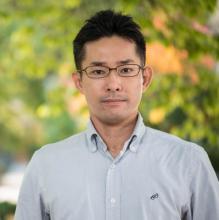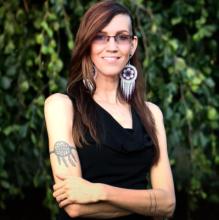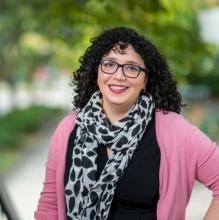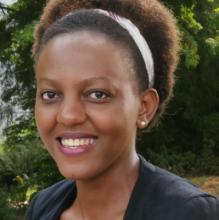My work follows the historical intersections of environmentalisms, Indigenous sovereignty movements, and labour organizing during "The War in the Woods", a string of forestry conflicts that erupted in British Columbia during the 1980s and 1990s.
Research Description
My dissertation research tracks the historical intersections of environmentalisms, Indigenous sovereignty movements, and labour organizing during "The War in the Woods", a string of forestry conflicts that erupted in British Columbia during the 1980s and 1990s. The Public Scholars Initiative is supporting my goal of expanding the audiences of my research, in particular by creating an interactive story map website fueled by public collaboration.
What does being a Public Scholar mean to you?
Being a Public Scholar means broadening the horizons of your research process beyond the figurative walls of the university. For me, this means exploring new mediums such as websites and visuality to connect with audiences beyond my dissertation committee and beyond the specialized audiences that consume academic publications. I also firmly believe that research in the arts and social sciences is best conducted as a process of collaboration with community; that communities should have input into and control over the writing of their histories, and that research in the arts and social sciences should have tangible benefits for its subjects.
In what ways do you think the PhD experience can be re-imagined with the Public Scholars Initiative?
The PhD program in the arts and social sciences is currently broken, as is entire system of post-secondary education it feeds into. We produce a dissertation which only our committee and perhaps a few specialists will read, and at best that might turn into a book which, again, will be limited to a largely academic audience. By supporting public-facing research, and public-powered research, the Public Scholars Initiative is breaking this myopia. There's also substantial benefits to a scholar's career development through moving in this direction. Currently a PhD in the Arts prepares participants for an academic career that frankly, due to the terrible state of the job market, is exceedingly unlikely to materialize. Countering this, the PSI supports the process of creating research that is applicable to affairs beyond the academy, and also provides career training workshops.
How do you envision connecting your PhD work with broader career possibilities?
My research has brought me into collaboration with a wide variety of stakeholders, including independent activists, Environmental Non-Governmental Organizations, Indigenous councils and leadership, and labour union organizers. This process of working across political, social, and cultural differences opens many opportunities in both government and the N.G.O. sector. Furthermore, through my UBC Arts PhD Co-Op placement at a small forest labour archive in Lake Cowichan, I'm training as an archivist and learning how groups preserve and represent their history in the heritage sector.
How does your research engage with the larger community and social partners?
As mentioned above my research collaborates with a multiplicity of stakeholders. Prior to beginning my program, I was already connected with both grassroots and E.N.G.O. circles due to working for a nature protection non-profit for several years. However, through my Co-Op placement, I'm now working with former loggers and labour union folks from the International Woodworkers of America, which means my research is becoming more balanced and I'm more connected to groups such as the B.C. Labour Heritage Centre. I was also in the process of building relations with two First Nations that were deeply involved in forest conflicts, however precautions surrounding COVID-19 has meant those relationships have now been put on hold.
Why did you decide to pursue a graduate degree?
When I first applied to the PhD program, I suppose I was still enamored with the possibility of working as a tenured researcher and lecturer. I also wanted to challenge myself, and in particular was fascinated with my research subject. Having worked in the E.N.G.O. world for several years, I had heard many a tale about “The War in the Woods”, and indeed came to realize that the conflict surrounding forestry in the 80s and 90s had incredible historical and contemporary significant. The events I research and write about were responsible for the explosion in size and influence of the E.N.G.O. industry, were an important vehicle in the ascendance of Indigenous rights movements, and also played a part in the utter decimation of organized labour in B.C. in the 1980s and 1990s. The significance of these events also makes it double important that my research finds an audience beyond the academy, hence why I am honored to be a part of both the Public Scholars Initiative and the Arts PhD Co-Op Program.
Why did you choose to come to British Columbia and study at UBC?
I was most fortunate to receive offers from several PhD programs across North America but, in the end, it was an easy choice. My supervisor Tina Loo is probably the leading expert in the history of environment and environmentalism in Canada, and the UBC History department is also incredibly strong in that area. I also wanted to stay residing in these lands as to stay better connected with the multitude of environmental and Indigenous movements that have been percolating here over the last decade or so. The idea of researching and writing “in place” is also very important to me, and hence the attraction of living in the locale and being connected over the long term with the communities I’m collaborating with and the land I’m writing about. Finally, to be very real, UBC offered me the most competitive funding package of any other program I received an offer from.




